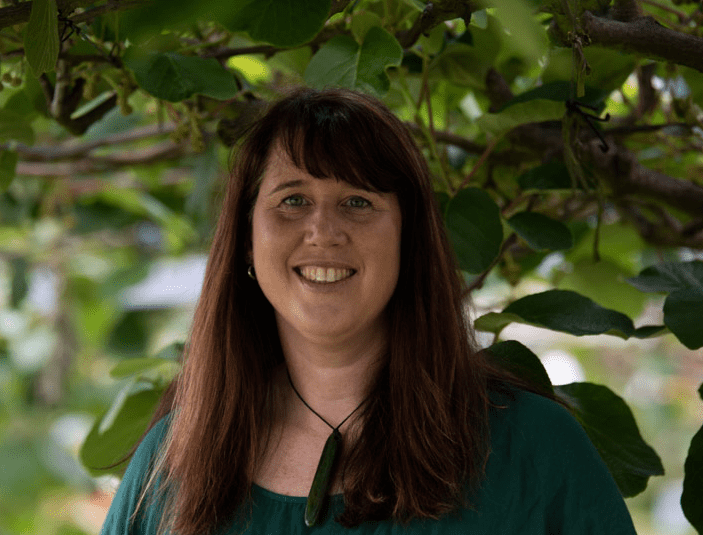Beccy studied at Massey University, then completed her PhD at the University of Idaho in the United States before returning to Aotearoa in 2005.
Having worked in biosecurity for several Crown Research Institutes, Beccy has worked on both the Austropuccinia psidii (myrtle rust) and Phytophthora agathidicida (kauri dieback) pathogens that are currently present in Aotearoa New Zealand and those that have not yet made their way here, looking at both pre- and post-border biosecurity.
Beccy has been working with myrtle rust since it was first found in Australia in 2010, and was a strong advocate for researching the pathogen and its potential impacts before it arrived. As such, she was an integral part of the initial response when myrtle rust was first found in Aotearoa in 2017.
Beccy continues to work on the myrtle rust pathogen, operating alongside mana whenua kaitiaki, the public, councils, industries, government and scientists, and has also led teams working in the response to kauri dieback at a national level.
Currently Beccy is also the co-lead for Ngā Rākau Taketake theme Host, Pathogen & Environment, which is looking into the role that environmental factors play on disease expression and severity, as well as investigating the genomes of the pathogens behind both myrtle rust and kauri dieback, with the aim that this knowledge will contribute to improving surveillance, control, management and conservation efforts.
“The more we can understand about a pathogen, the better we can understand how to control it” says Beccy.
Beccy is motivated to work in this field by her desire to protect the ngahere (forest) for future generations, with a focus on how different groups can work together to achieve this. “It’s our duty to hand over something to the next generation that is at least as good as or better than what is there now.”
In her spare time, Beccy is currently learning Te Reo Māori at Te Wānanga o Aotearoa, and enjoys gardening and spending time with her family and dogs.
